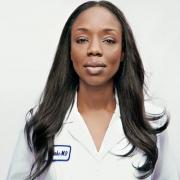Parents: Put Your Own Oxygen Mask On First (or How to Raise Healthier Children)
We all need support, no matter who we are. As a pediatrician, CEO and a mom, I am constantly juggling priorities, schedules and child care. Some days are just plain hard and I’ve learned that the only way to get through the tough days and weeks is to practice self care.
Self care is about how we can be our best selves in order to be of support to those around us. For children to lead healthier lives, they need a healthy adult who can act as an emotional buffer to stressful or traumatic experiences. In other words, taking care of my own emotional health and well-being is one of the best investments that I can make for my kids’ health.
Regardless of zip code or walk of life, between half and two-thirds of Americans experience at least one major stressor such as parental separation or divorce, domestic violence, or parental depression before age 18. Research from the Centers for Disease Control and Kaiser Permanente shows that these exposures, known as Adverse Childhood Experiences or ACEs, can profoundly affect health over a lifetime, increasing the risk of chronic illness like asthma, diabetes, and heart disease.
At the Center for Youth Wellness, we screen every child for exposure to ACEs because research also shows that early detection and intervention can make a big difference. Emerging science tells us that when kids are exposed to ACEs, it can activate a cascade of hormones and other chemicals designed to prepare the body for “fight or flight.” Left unaddressed, these stress hormones can actually be harmful to the developing brain and other body systems over time.
The good news is that science also shows that a healthy parent or caregiver can be one of the most important ingredients to preventing an unhealthy stress response and healing the effects of the sometimes inevitable challenges that life brings.
In order to be a healthy parent or caregiver, we need to make sure we have our own stress responses in check. That’s where the importance of self-care comes in.
I love the analogy that a pediatrician colleague of mine, Dr. RJ Gillespie, uses in Portland, OR: “You put the oxygen mask on first before helping others.”
Simple things you can do to incorporate a self care practice are: regular exercise, good nutrition, healthy sleep, therapy for good mental health, mindfulness practices—like meditation—and supportive relationships. These aspects of self care are what we recommend to families in our clinical program.
Self care for me means meditation, taking walks and eating healthy. I also lean on my family, friends, and colleagues because supportive relationships are critical to our health and well-being. As parents, finding support through family relationships or through parent-specific support groups can be helpful and make a world of difference.
Without early interventions, children who are exposed to Adverse Childhood Experiences are much more likely to experience negative health outcomes throughout the course of their lives. These experiences can lead to poor health later in life, and are linked to 7 of the 10 leading causes of death including heart disease, chronic lung disease, cancer, and stroke.
Learning about the lasting health impact of Adverse Childhood Experiences can help parents understand the role we can play in keeping ourselves and our children healthy. A healthy supportive adult is one of the most important ingredients a child needs.
If you are a parent, caregiver, or have a child in your life, put on your own oxygen mask first. This is how children can thrive.
Dr. Nadine Burke Harris, MD, MPH, FAAP, is Founder and Chief Executive Officer of the Center for Youth Wellness. She has earned international attention for her innovative approach to addressing adverse childhood experiences as a risk factor for health problems, such as heart disease and cancer.



The views and opinions expressed in this post are those of the author(s) and do not necessarily reflect those of MomsRising.org.
MomsRising.org strongly encourages our readers to post comments in response to blog posts. We value diversity of opinions and perspectives. Our goals for this space are to be educational, thought-provoking, and respectful. So we actively moderate comments and we reserve the right to edit or remove comments that undermine these goals. Thanks!